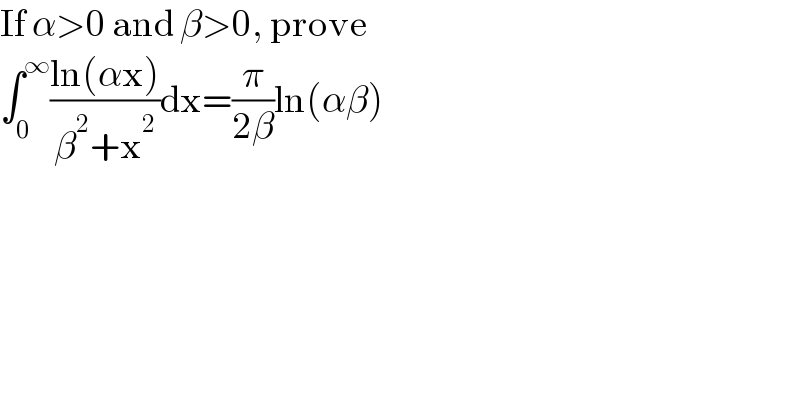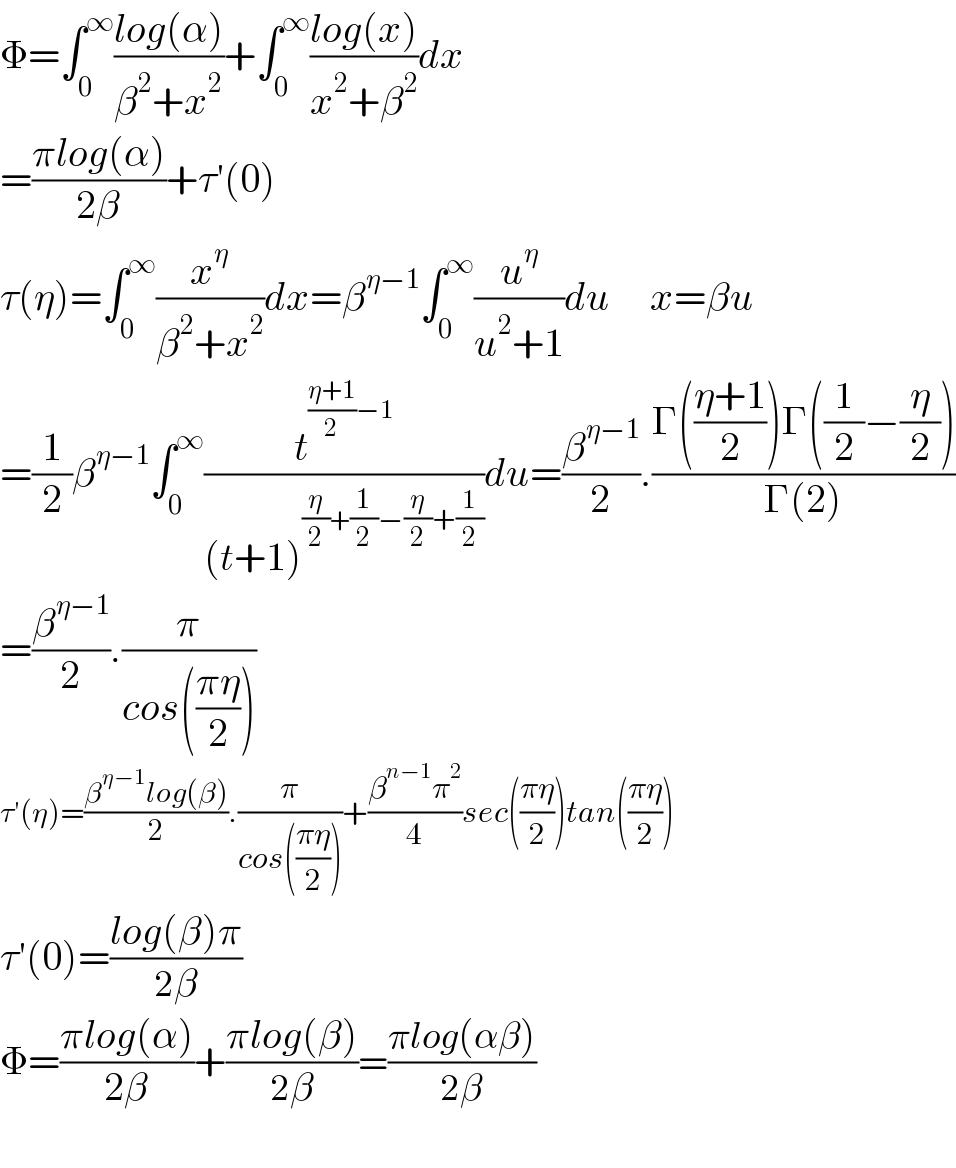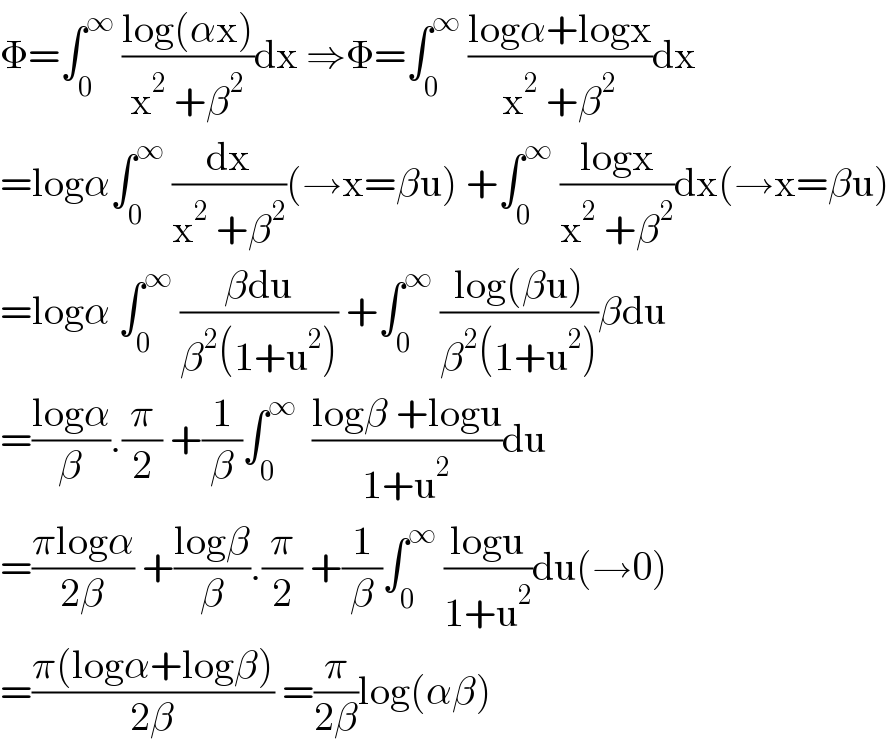
Question and Answers Forum
Question Number 136425 by Ar Brandon last updated on 21/Mar/21

Commented byDwaipayan Shikari last updated on 21/Mar/21

Commented byAr Brandon last updated on 21/Mar/21
Thanks
Commented byDwaipayan Shikari last updated on 21/Mar/21

Answered by mathmax by abdo last updated on 21/Mar/21

Commented byAr Brandon last updated on 21/Mar/21
Thanks
